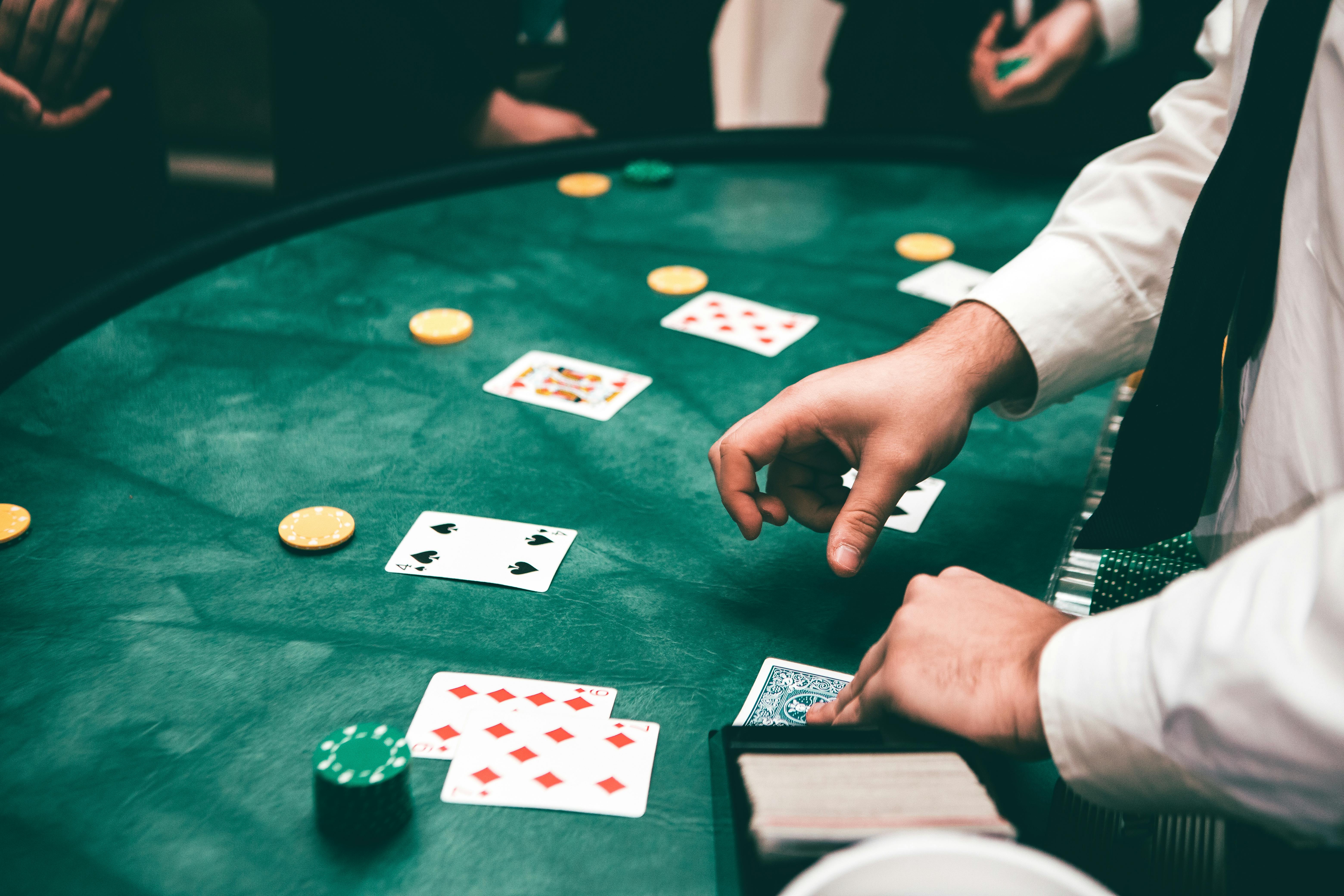
Both card and capital worlds are not as different as they appear. Success in either realm requires logic, waiting and keeping one’s cool under tension.
In stocks as well as gambling, winning (all right, survival) calls upon something more than chance. You must pay attention, make insights and have a temperament to cope with ambiguity. This is not referring to gambling per se. This refers to making wise judgments under the limitations of knowledge.
Some of those learnings carried over from online blackjack are remarkably applicable to financial markets. Strategy, mathematics and psychology all converge. Read on to examine how that classic casino card game mirrors the instruments and mentalities used by savvy investors.
Understanding Probability in Both Worlds
At its simplest, blackjack is a game of probability. Players make choices based on knowable probabilities; the likelihood that a card will come up, the likelihood that the dealer will go bust and how much risk they’re willing to take. Just as investors weigh the possibility of different outcomes with each decision to buy versus sell.
The important thing to know is that no setting will ever produce results automatically. Both at blackjack tables and at the stock exchange, results are influenced by chance as well as by patterns. But educated players make no random decisions. They evaluate risk, consider history and then make decisions according to what statistics indicate, not by inclination.
This approach sets educated decisions apart from lucky guesses. Online blackjack players consult charts or simulations to help them. Investors consult data and trends prior to making fund transfers.
Planning Your Next Move with Strategic Thinking
In blackjack, every card that’s dealt is an opportunity to use strategy. It’s not just those dealt cards, but one’s reaction to them. Hit, stand? Double down, split? Smart players go one, two, perhaps even three steps further ahead. They glance at that dealer’s up card and at the rest of that deck.
It works similarly with investments. Stock investors tend to create timelines, conditions or company-specific plans around which they make decisions. They are not acting upon every minuscule movement, they are acting as per plan.
Lasting success is a function of making decisions regularly. In either situation, consistency within a pattern outweighs looking for quick gain. A predictable, established pattern dominates frantic or emotional decision-making.
Don’t Bet the Whole Bankroll
One of the basic rules of blackjack is never to wager more than you are able to possibly lose. Such a simple rule has great application to anybody who invests in markets. Risk management isn’t just limited to holding a hand at the table, but to holding a stock portfolio as well.
It’s not a question of never risking anything at all. Risk is involved in both games. But dealing with it intelligently, by distributing bets or diversifying investments, lowers the possibility of all-out loss.
Casinos use rules to limit exposure. Traders use stop-loss orders, asset allocations and research to do the same thing. The rule is no different: protect your assets so that you can continue to play the long game.
Staying Cool Under Uncertain Times
Blackjack tables, live or virtual, do tend to challenge one emotionally. One losing streak and frustration sets in. The same holds true when markets are collapsing. Fear, panic or even undue confidence can cloud one’s judgment fast.
That is why being emotionally in control is most important. Professional performers in both worlds know all too well that stressed choices equal poor performance. The ability to stay composed in rapid situations is a trait to be admired.
Learning to pause, take a breath and clear your mind is a skill worth acquiring. It isn’t a guarantee of success but a prevention of unscheduled failures.
Lessons from Losses
At one time or another, everyone will lose a hand that he feels he could have won. Everyone who bets bets on a stock that disappoints. The distinction between long-run and short-run players is being able to learn from those disappointments.
In blackjack, there are those who maintain a record of hands, keeping account of what did and did not work. Investors do exactly that, analyzing performance, making strategic adjustments and adjusting to new environments.
This feedback loop matters. Both environments are constantly in flux. Adapting, not panicking, is a mark of expertise. Most resilient people are those who treat mistakes as a lesson, not a final verdict.
The Context Determines Each Decision
Both at investments and at blackjack, context is all that matters. What is a winning move at one time can be a loser at another. In casinos, players pay attention to rules at the table, number of decks or whether the dealer shows soft 17. Investors pay attention to trends everywhere, rules and sector performance.
Knowledge of the playing field helps make smarter decisions. Knowing a strategy is not enough; you must apply the strategy to the right situation. That means keeping current, asking questions and being flexible as the environment changes.
Strategy never occurs in isolation. The great players of either universe are all concerned with timing, structure and context.
Self-Discipline and Patience
Both gambling and investing are not sprints but are marathons that require patience and self-control to weather highs and lows. There is temptation to go all-in huge when times are great or to recoup losses that aren’t.
But best outcomes often are achieved by slow, thoughtful action. In blackjack, this might be waiting for a good hand or not risking potentially questionable moves. With investing, it can be holding an position while there is short-term volatility present or gradually rebalancing a portfolio.
Discipline is keeping to the plan, whether it is easy to do or not. Patience is also not hastening to do things too fast. Both of these form a foundation for long-term outcomes, win or lose.
Blackjack and the stock exchange are very different on the surface. One is a card game, the other an international economic network. Both are, however, all about uncertainty, strategy and making the best decision with the data that you are provided with.
Learning from blackjack, including online variants such as online blackjack, can provide investors with a handy blueprint. One isn’t just gambling online per se. One is assessing odds, making thoughtful plans, as well as keeping one’s cool under stress. In an uncertain world, these are skills for a time like this. Whether at a table or at a chart, attitude defines results. Pay attention. Think ahead. And always know when to hold or to fold.



